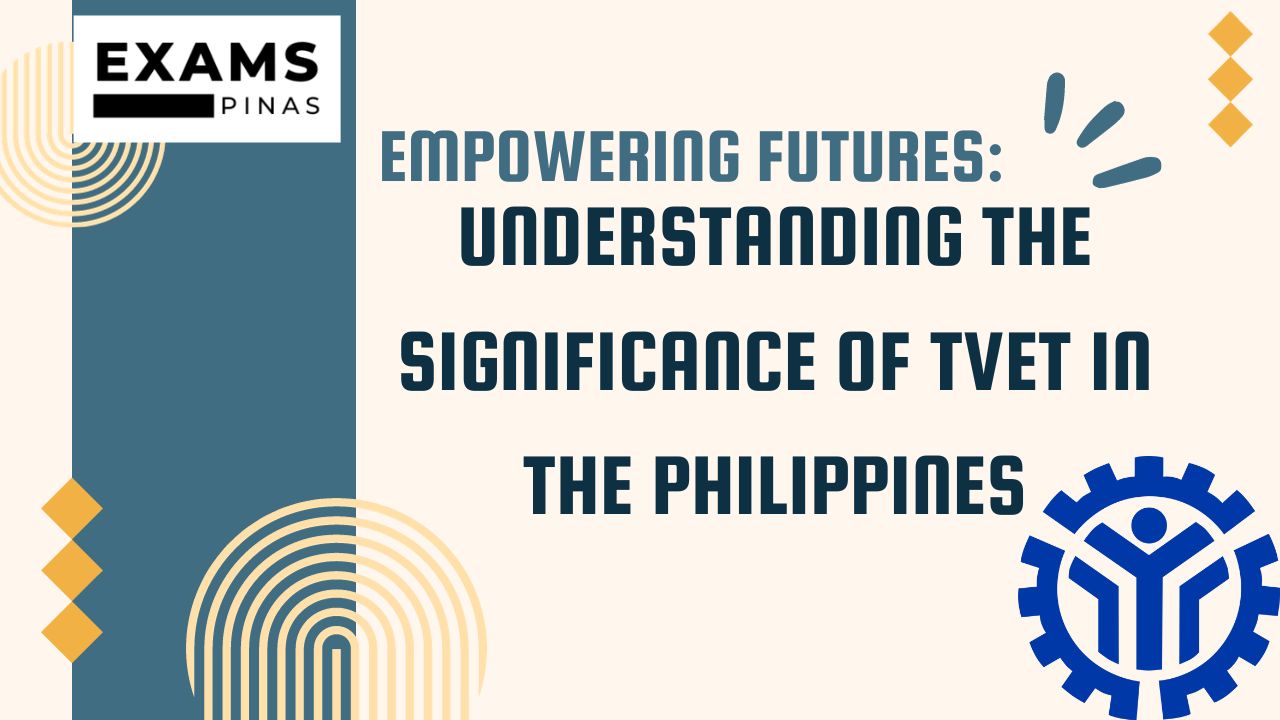In the dynamic landscape of the Philippines, where industries are evolving at a rapid pace, Technical Vocational Education and Training (TVET) stands as a cornerstone of opportunity and progress. It plays a pivotal role in equipping individuals with the practical skills needed to thrive in various industries, thereby empowering them to shape their futures. This article aims to shed light on the significance of TVET in the Philippines and how it is shaping the career paths of countless individuals.
TVET: A Gateway to Practical Skills
At its core, TVET is designed to bridge the gap between traditional academic education and the demands of the workforce. It provides individuals with hands-on, industry-relevant training that empowers them to become skilled professionals in a wide range of fields. This includes vocations such as automotive mechanics, culinary arts, information technology, electrical services, and many more.
Meeting the Needs of Diverse Learners
One of the strengths of TVET is its inclusivity. It accommodates individuals from various educational backgrounds and age groups, making it accessible to high school graduates, professionals seeking career changes, and even those who may not have completed their formal education. TVET institutions recognize that learning is a lifelong journey, and they provide opportunities for skill development at all stages of life.
Alignment with Industry Demands
A key aspect of TVET’s success is its close collaboration with industries. TVET programs are designed in consultation with businesses and employers to ensure that graduates are not just job-ready but also capable of meeting current industry demands. This alignment reduces the skills gap and enhances employability, making TVET graduates highly sought-after by employers.
Empowering Entrepreneurs
TVET doesn’t just prepare individuals for traditional employment; it also fosters entrepreneurship. Many TVET graduates go on to start their businesses, applying the skills and knowledge acquired during their training. This entrepreneurial spirit contributes to economic growth and innovation in the Philippines.
Holistic Development
While TVET is primarily focused on skills training, it goes beyond that. It nurtures character development, work ethics, and critical thinking. Graduates not only possess technical competence but also the soft skills needed to excel in their chosen fields.
Accessible and Affordable Education
One of the notable features of TVET is its affordability. Many programs are available at a fraction of the cost of traditional higher education, making skill development accessible to a broader segment of the population. Scholarships and financial assistance programs further enhance accessibility.
Driving National Development
TVET plays a significant role in nation-building. A skilled workforce is essential for economic development, and TVET institutions are at the forefront of shaping the workforce of the future. They contribute to reducing unemployment rates, boosting productivity, and ultimately driving the progress of the nation.
In conclusion, TVET in the Philippines is a force of empowerment and transformation. It equips individuals with practical skills, empowers entrepreneurs, aligns with industry demands, and contributes to the holistic development of learners. It’s not just about acquiring skills; it’s about empowering futures.
As the Philippines continues to evolve, TVET will remain a driving force behind economic growth, innovation, and inclusive prosperity. It’s a beacon of hope for individuals seeking to shape their destinies and build a brighter future. With TVET, empowerment knows no bounds, and futures are filled with promise.

